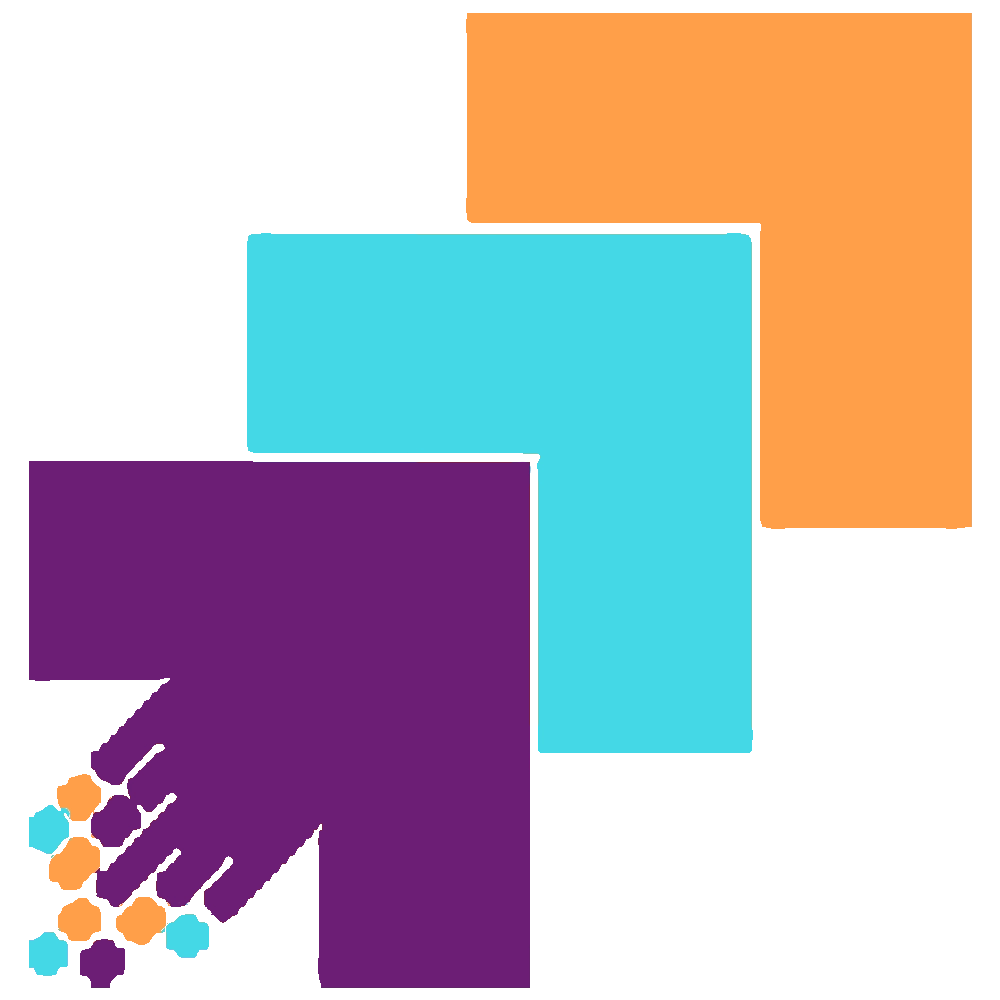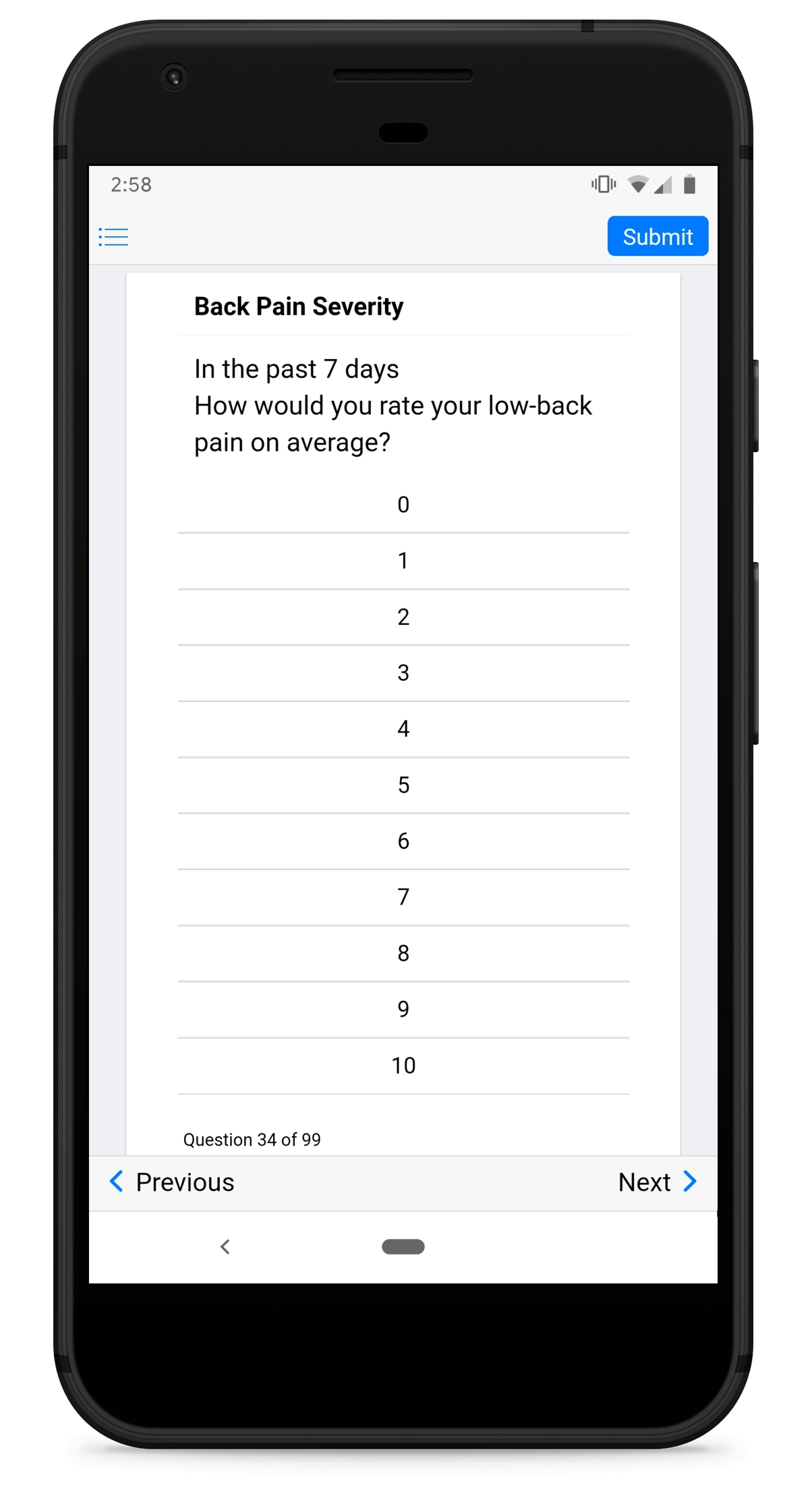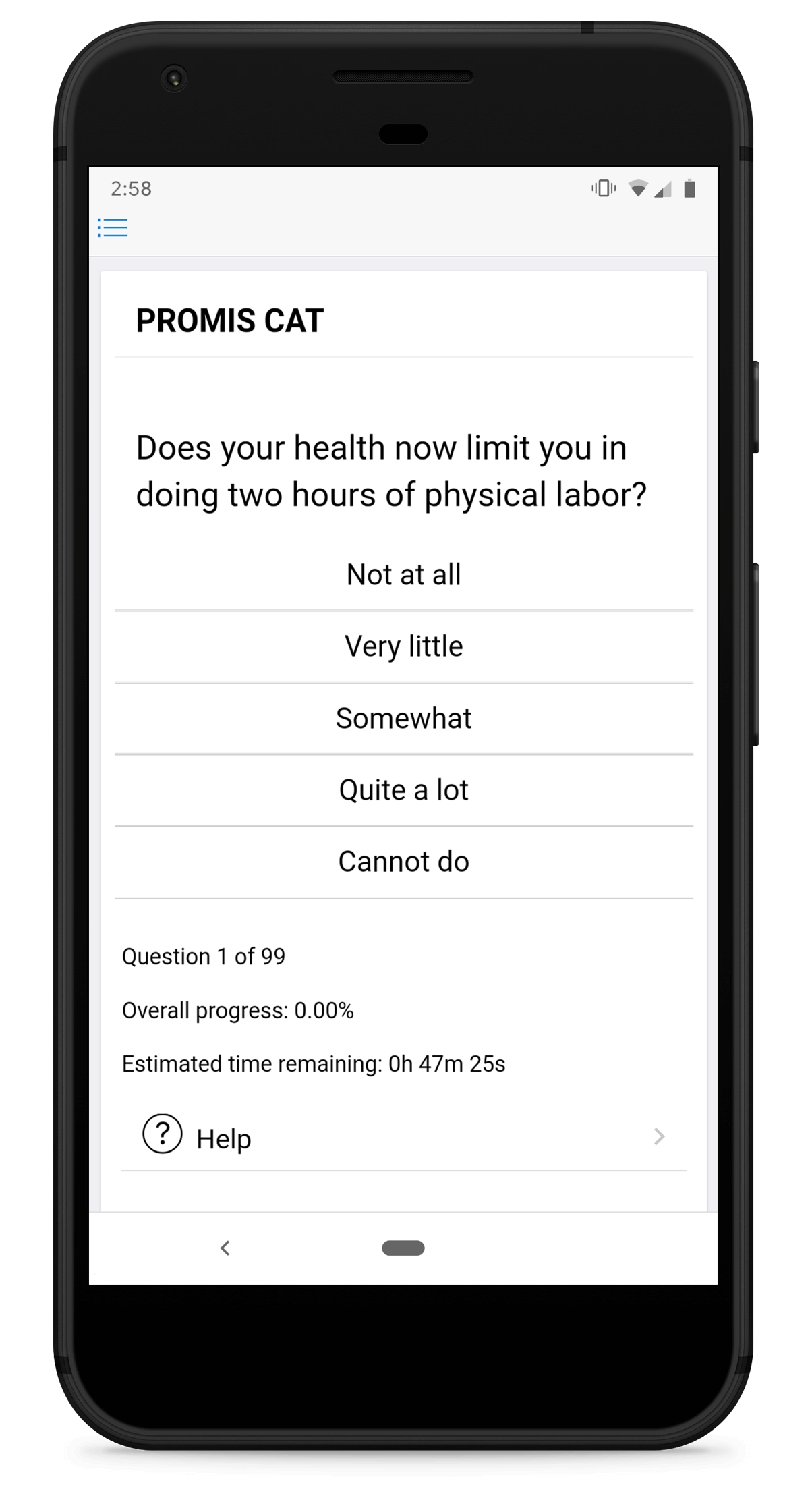Back Pain Tracker Overview
The Back Pain Tracker app helps your provider gather important information before your visit. You and your provider can then review treatment options more carefully and come up with a care plan that is best for you.
(You will need a code from your provider to activate the app. Please see your provider for more information.)
The Back Pain Tracker is an interactive mobile app that assists the Shared Decision Making (SDM) process for patients with chronic non-specific low back pain and their healthcare providers.

The Highest and Most Reliable Standards
To help give you the most accurate results you need, the Back Pain Tracker meets the minimum data established by the NIH Research Standards for Chronic Back Pain.

Personalized and Proven Results
Back Pain Tracker lets patients easily enter their data and see personalized comparisons to normal ranges based on your age, sex, and other features using the NIH PROMIS Computer Adaptive Tests.

Award-Winning Technology
Our small company’s design for the app beat out more than 50 major firms who competed in Phase 1 of the AHRQ App Challenge. Among the 10 contenders in Phase 2, our prototype app won 2nd Place among the three Grand Prize winners!
Our Project
We strive to attend to the needs of patients with chronic back pain by leveraging the best science and technology. Patients helped us develop the app through a user-centered design approach. We leverage benchmarked pain and function scores from the National Institutes of Health (NIH) Patient Reported Outcomes Measurement Information System Computer Adaptive Tests (PROMIS-CAT). We carefully personalize results based on important features identified by NIH Research Standards for Chronic Low Back Pain.
Our goal is to help patients directly understand their pain and function scores compared to others of similar age and sex, integrate these scores and trends into their overall treatment plan, and continue to use the app over time, with the scores and trends being discussed regularly between the patient and their care givers.
Our Inspiration
Ernest Amory Codman is our hero and inspiration because of his sacrifices and lifetime commitment to "The End Result Idea", the concept of measuring and publicly reporting outcomes experienced by individual patients. Codman was fired from Harvard Medical School in 1915 for declaring that financial incentives motivated doctors and hospitals rather than patient outcomes. He was buried in an unmarked grave in Boston, but his End Result Idea survived, and now, more than a hundred years later, PEER Technologies, PLLC hopes to replace Codman's pen-and-paper notes on each patient with smartphone apps such as the Back Pain Tracker, and make it easy for patients to carefully track and share their pain and function results.
 AHRQ Challenge
AHRQ Challenge

The Agency for Healthcare Research and Quality (AHRQ) Step Up App Challenge: Advancing Care Through Patient Assessments, the Agency for Healthcare Research and Quality (AHRQ) required teams to design, develop, and pilot a user-friendly application that simplifies the process of collecting, interpreting, aggregating, and sharing patient-reported outcomes (PRO) data related to physical function outcomes in the ambulatory care setting. PRO's are "any report of the status of a patient's health condition that comes directly from the patient, without interpretation of the patient's response by a clinician or anyone else."
(from About the Step-Up App Challenge: Advancing Care Through Patient Self-Assessments. Content last reviewed August 2018. Agency for Healthcare Research and Quality, Rockville, MD. Click here to learn more)
0
Phase I Participants
0
Phase I Winners
0
Phase II Winners
Why PRO Data Matters
PRO's are vital to understanding the complex needs of a patient. The patient’s perspective on domains across conditions (e.g., self-reported health status, physical and emotional well-being) complement clinical assessments, providing a holistic view of the care received. Use of PRO's for guiding and improving care is especially important for patients with multiple chronic conditions, older adults, and people with disabilities, as PRO's can reflect outcomes of care for multiple conditions treated by multiple providers across multiple settings of care. The data are useful for providers, as well as patients and researchers, as they provide a deeper understanding of the patient’s physical, mental, and social well-being.
The Problem to Solve
Today, patients, researchers, and providers are unhappy with the current state of PRO data collection. Most PRO data are collected via pen and paper, which is difficult for patients and researchers to access and use. Researchers who want to analyze PRO data across different practices or health systems would benefit from a more standardized approach to collecting data. Recently, some digital tools have been developed to streamline the collection of PRO data. However, those digital tools are not widely adopted due to problems related to workflow integration and a lack of data standards. Developing an easily adoptable tool that collects and shares standardized data will solve this problem and advance the state of PRO's.
What We Did
We beat more than 50 large companies to win Phase I of the AHRQ Step Up App Challenge. In Phase II, We won 2nd place among the top 3 winners in the challenge.
In Phase I, we developed a business plan and wrote a proposal for the Back Pain Tracker.
In Phase II, we developed a prototype and tested usability with 18 patients 5 physicians.
We created a video for the challenge which provides an overview of our approach as well as showing a demo of the Back Pain Tracker.

